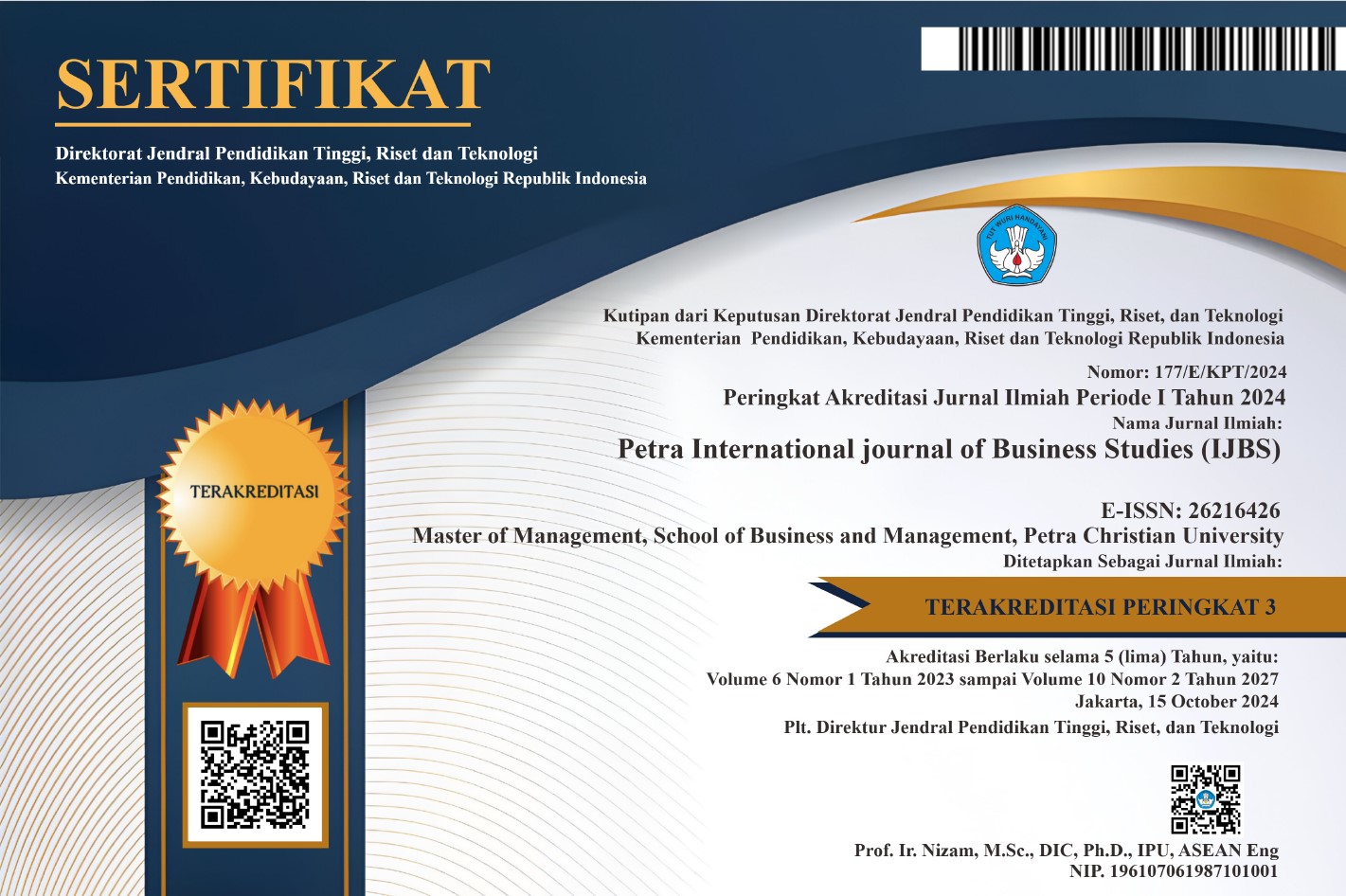The Indirect Effect of Computer Self-Efficacy of E-Commerce Users on Intention to Use
DOI:
https://doi.org/10.9744/ijbs.3.2.75-85Keywords:
computer self-efficacy; ease of use; usefulness; e-commerce; intention to useAbstract
E-commerce market in Indonesia has tremendous growth and predicted to become significant contributor to Foreign Direct Investment. Millennials, heavily affected by technology and internet, considered to be the driver growth of e-commerce. Applying the theory of modified Technology Acceptance Model (TAM), this research analyzes whether perceived of ease of use and perceived usefulness mediate the impact of computer self-efficacy on the behavior of e-commerce users to use Lazada platform. The study was a quantitative study with online questionnaire. Data of 200 respondents were analyzed by Structural Equation Modelling and the result shows that computer self-efficacy indirectly affects behavioral intention to use through perceived ease of use. Perceived usefulness and attitude towards use are not significant mediators because of their insignificance on intention to use. Computer self-efficacy has significant impact on behavioral intention mediated by perceived ease of use, but not by perceived usefulness.
Downloads
Additional Files
Published
Issue
Section
License
Petra IJBS (e-ISSN: 2621-6426) is published by Master of Management program, School of Business and Management, Petra Christian University, Indonesia (MM SBM PCU).












